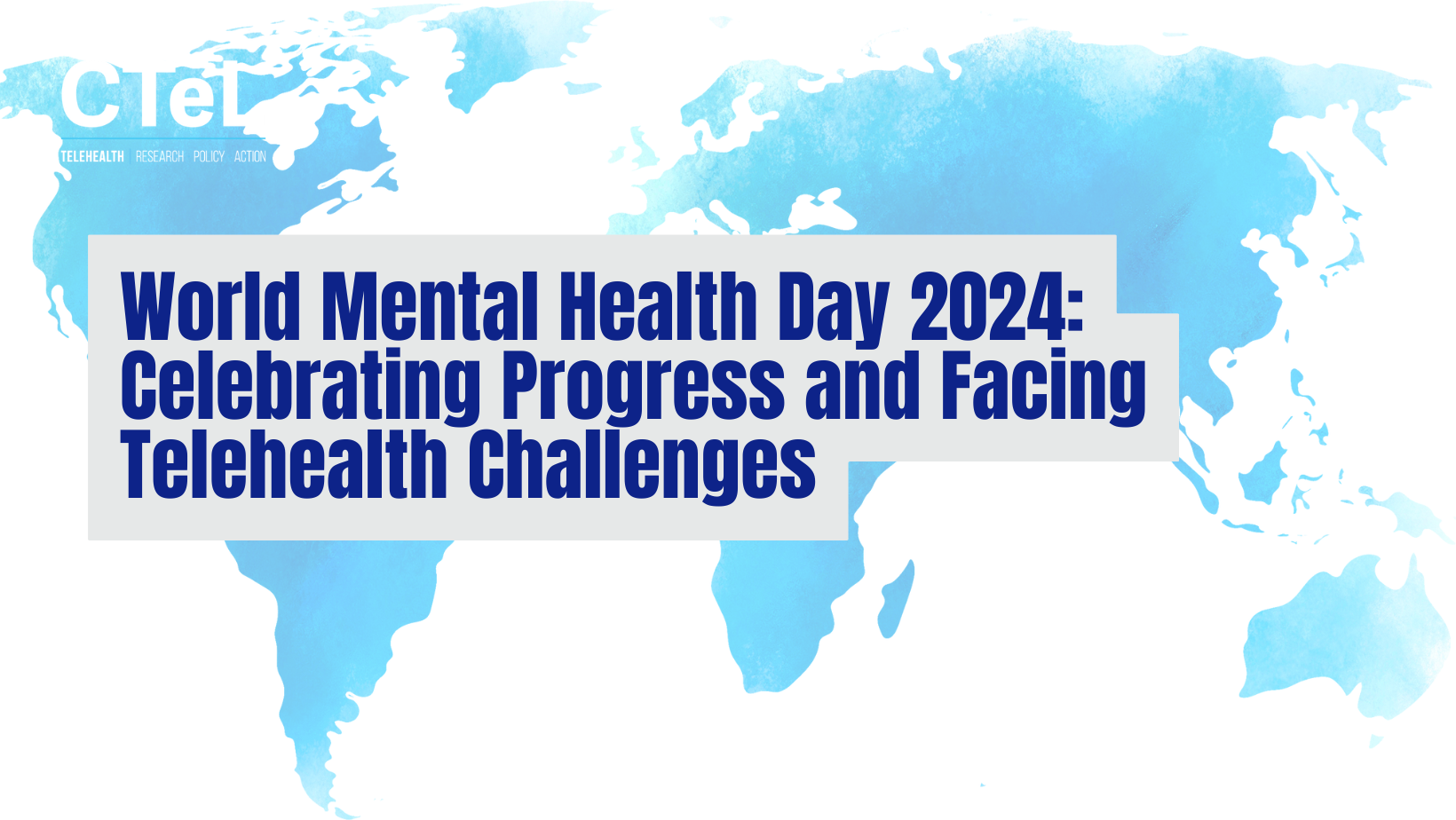World Mental Health Day 2024: Celebrating Progress and Facing Telehealth Challenges
Today on October 10th, the world comes together to recognize World Mental Health Day, a global initiative led by the World Health Organization (WHO) to raise awareness of mental health issues and mobilize efforts in support of mental well-being. This year's theme focuses on “Mental Health for All: Greater Access, Greater Care,” shining a spotlight on the critical need for improved mental health services globally.
In the United States, mental health care has significantly expanded in recent years, thanks in part to the growth of telehealth services, especially during the COVID-19 pandemic. However, as we celebrate the strides made in improving access to mental health care, we also face a critical juncture: the looming expiration of telehealth waivers and ongoing debates in Congress regarding the future of telemedicine. These uncertainties could greatly impact millions of Americans who rely on telehealth for mental health support.
The Rise of Telehealth in Mental Health Care
During the COVID-19 pandemic, telehealth emerged as a lifeline for millions of Americans, allowing patients to access mental health services remotely during lockdowns and social distancing. The Centers for Disease Control and Prevention (CDC) reported a 154% increase in telehealth visits in March 2020 compared to the previous year, with mental health services seeing a particularly sharp rise. Telehealth eliminated barriers like transportation and geographic distance, providing care to those in underserved and rural areas who had previously struggled to access mental health services.
Telehealth also addressed the stigma often associated with in-person mental health appointments. The ability to seek care from the comfort and privacy of one's home has encouraged many individuals, particularly those with anxiety or depression, to seek help. In 2021, more than 40% of all mental health services were delivered via telehealth, demonstrating its critical role in the nation's mental health care delivery system.
The Looming Expiration of Telehealth Waivers
While telehealth has greatly expanded access to mental health care, this progress is now under threat. The Public Health Emergency (PHE) waivers, which allowed for telehealth flexibilities such as prescribing controlled substances without an in-person visit, are set to expire soon. Without Congressional action, these waivers will end, and millions of Americans who rely on telehealth for mental health treatment, including the prescribing of medications like buprenorphine for substance use disorders, could face significant challenges accessing the care they need.
There are 83 days remaining before the expiration of these waivers, and the uncertainty surrounding the future of telehealth is growing. The expiration could create a care gap for patients who have relied on remote services to manage conditions like anxiety, depression, and opioid addiction. Pharmacies across the U.S. have already begun denying prescriptions written via telehealth platforms, signaling the urgency of finding a permanent solution .
Pending Congressional Legislation
Efforts are underway in Congress to address the future of telehealth. Legislation like the Telehealth Modernization Act aims to make some telehealth flexibilities permanent, ensuring continued access to remote mental health care. The TREATS Act (H.R. 5163), currently pending, would also help preserve access to telehealth prescribing of controlled substances, a critical need for individuals managing mental health conditions and substance use disorders.
However, as of now, no permanent legislative solutions have been passed, leaving the future of telehealth uncertain. Advocates for mental health care are urging lawmakers to act swiftly to ensure that millions of Americans do not lose access to the life-saving services telehealth provides.
The Positive Impact of Telehealth on Mental Health
The benefits of telehealth for mental health care are undeniable. According to a 2023 report from the American Psychological Association (APA), 86% of psychologists who use telehealth have reported an improvement in access to care for patients, particularly those in rural or underserved communities. Additionally, a study from McKinsey & Company revealed that 40% of behavioral health patients would have gone without care if not for telehealth services.
“Additionally, a study from McKinsey & Company revealed that 40% of behavioral health patients would have gone without care if not for telehealth services.”
Telehealth has not only provided immediate access to care during the pandemic but has also proven to enhance long-term patient outcomes. Remote mental health services have been shown to reduce no-show rates and improve continuity of care, which is especially important for patients managing chronic conditions such as PTSD, anxiety, depression, and substance use disorders.
Moving Forward: Ensuring Continued Access
As we celebrate World Mental Health Day, it is essential to reflect on telehealth's critical role in expanding access to care and improving mental health outcomes. However, we must also recognize the challenges ahead and advocate for permanent telehealth solutions to ensure that the progress made is not lost.
Telehealth has opened doors for millions of Americans, and as we face the expiration of waivers and uncertainties in legislation, now is the time to push for lasting reforms. Policymakers, healthcare providers, and patients must work together to ensure that mental health care remains accessible to all—regardless of location or circumstance.
References:
American Psychological Association (APA). (2023). Psychologists’ experiences with telehealth and patient care. https://www.apa.org
Centers for Disease Control and Prevention (CDC). (2020). Use of Telehealth in Mental Health Services. https://www.cdc.gov
McKinsey & Company. (2021). Telehealth: A quarter-trillion-dollar post-COVID-19 reality? https://www.mckinsey.com
U.S. Congress. (2023). Telehealth Modernization Act. https://www.congress.gov


